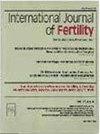Overactive bladder: treatment options for the aging woman.
International Journal of Fertility and Womens Medicine
Pub Date : 2005-01-01
引用次数: 0
Abstract
Overactive bladder (OAB) is a common, chronic, and debilitating condition that is most often observed in the elderly population. It has a profound impact on the quality of life of patients, affecting many aspects of daily living, social interaction, and self-perception of health status. Possible neurological, muscular, and metabolic causes have been proposed, but in most cases the exact pathophysiology remains unclear. The management of OAB can be initiated conservatively with behavioral modification and antimuscarinics. For refractory cases, neuromodulation, denervation techniques, and bladder augmentation may be indicated. Not all patients are cured, but most may be improved with appropriate individualized therapy.
膀胱过度活动:老年妇女的治疗选择。
膀胱过动症(OAB)是一种常见的慢性衰弱性疾病,最常见于老年人。它对患者的生活质量有着深远的影响,影响着日常生活、社会交往和自我健康状态感知的许多方面。可能的神经、肌肉和代谢原因已被提出,但在大多数情况下,确切的病理生理尚不清楚。OAB的治疗可以通过行为改变和抗病毒药物保守地开始。对于难治性病例,可能需要神经调节、去神经支配技术和膀胱增强术。并不是所有的病人都能治愈,但大多数病人可以通过适当的个体化治疗得到改善。
本文章由计算机程序翻译,如有差异,请以英文原文为准。
求助全文
约1分钟内获得全文
求助全文

 求助内容:
求助内容: 应助结果提醒方式:
应助结果提醒方式:


